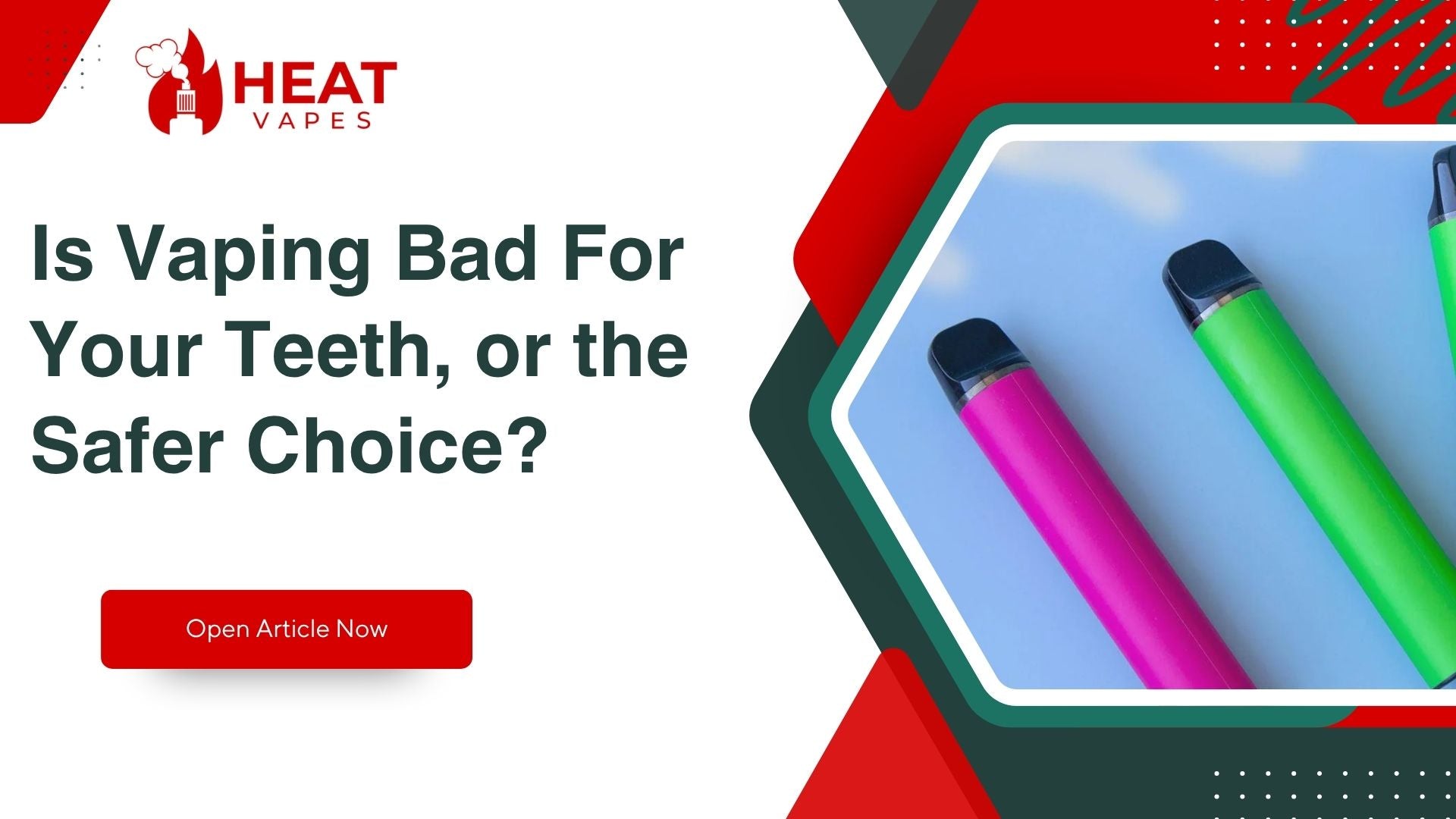
If you’ve ever taken a puff on your vape indoors and then suddenly glanced up at the ceiling, you’ll know the small wave of panic that hits when you spot a smoke alarm blinking back at you. It’s a fair question: Do Vapes Set Off Smoke Alarms? After all, it’s not smoke in the traditional sense, but thick clouds of vapour can look suspiciously similar to the real thing. And when you’re in places like hotels, workplaces, or airports, the last thing you want is a shrieking alarm and a hallway full of people glaring at you.
Let’s break this down properly — how smoke alarms actually work, why vapour can trigger them, and what you should keep in mind about “Do Vapes Set Off Smoke Alarms?” before casually vaping indoors.
How Smoke Alarms Pick Up What’s in the Air
The first thing worth knowing is that not all smoke alarms work the same way. The type of detector above your head plays a huge role in whether a puff from your device will set it off.
-
Ionisation detectors: These are very sensitive to tiny particles in the air. They’re designed to pick up the first signs of fast-burning fires, but they’re also the most likely to respond to vapour clouds. Even modest exhalations can register.
-
Photoelectric detectors: These alarms use a light beam inside the chamber. When smoke or dense particles interrupt the beam, the alarm sounds. Vapour from high-powered devices, especially sub-ohm kits, is thick enough to fool these sensors.
-
Heat detectors: These don’t react to vapour at all. Instead, they kick in when temperatures suddenly rise. Since vaping doesn’t change the temperature of a room, you can usually breathe easy around these.
-
Combination detectors: Increasingly common in homes and commercial spaces, these pair ionisation with photoelectric sensors. Great for safety, but they mean vapers have double the chance of triggering an unwanted siren.
Can Vapes Actually Trigger Them?
Do Vapes Set Off Smoke Alarms? In short: yes, they can. Vapour may not be smoke, but to most detectors, it looks close enough. The outcome depends on:
-
The type of alarm fitted in the room.
-
The size and thickness of your clouds.
-
How ventilated the space is — poor airflow means vapour lingers.
-
How close you are to the alarm itself.
That’s why some people claim they’ve vaped indoors for years without issue, while others set off an alarm in a single puff.
Why Vapour Confuses the Sensors
At its core, vapour is made up of aerosols — tiny liquid droplets suspended in the air. Smoke detectors aren’t intelligent enough to separate vapour from real smoke. To the sensor, particles floating around look like a possible fire, so it reacts.
Sub-ohm vapes complicate things even more. They create dense, milky clouds that don’t disappear instantly. If the vapour drifts upwards and sits near the detector, the alarm has a decent chance of going off.
Hotels: The Grey Area for Vapers
A big concern for many is hotel rooms. Can you discreetly vape without anyone noticing? Honestly, it’s a gamble.
Most modern hotels treat vaping exactly the same as smoking. That means no vaping in non-smoking rooms. Detectors in hotels are deliberately sensitive because management can’t afford fire risks. A puff in the bathroom or by the window could still set things off.
Worse, some hotels now use specialist detection devices designed to pick up nicotine vapour, not just smoke. If you’re caught, expect fines, cleaning fees, or even extra charges on your bill. It’s rarely worth the risk.
Public Buildings and Offices
When it comes to workplaces, schools, restaurants, and shopping centres, the rules are usually clear: no vaping indoors. Partly it’s about health policy, but it’s also about avoiding false alarms. Modern offices and public buildings tend to rely on combination detectors that are extremely sensitive.
Imagine an entire office block being evacuated because of one careless cloud. At best, it’s embarrassing. At worst, it can cost money and bring unwelcome attention from the fire brigade.
Vaping in Airports and Airplanes
Here’s where things move from inconvenient to serious. Airports and airplanes are absolute no-vape zones.
Aircraft lavatories have detectors that are designed to pick up the smallest trace of smoke or vapour. They’re incredibly sensitive, and if you try to vape, you’ll almost certainly set them off. Airlines take this extremely seriously. Fines, bans, or even legal action can follow.
Airports are no different. The alarms there are equally sharp, and vaping anywhere other than designated smoking zones can land you in trouble quickly. The best advice? Don’t risk it. Wait until you’re outside.
If You Must Vape Indoors: Reducing the Risk
There will be times when you’re in a private space and tempted to vape indoors. While it’s never a guaranteed safe bet, there are a few ways to lower the risk:
-
Open a window and keep fresh air circulating.
-
Exhale towards an extractor fan or a desk fan.
-
Avoid blowing clouds upwards toward the ceiling.
-
Use a lower-powered device or pod kit that produces less vapour.
-
Take shorter draws to reduce the size of your clouds.
These tricks don’t make you immune, but they make a false alarm less likely.
Why Outdoor Vaping is the Safer Bet
The truth is, the safest choice is still the simplest one: vape outdoors. Vapour dissipates almost instantly in fresh air, leaving no chance of confusing alarms and no lingering condensation on walls or ceilings. You also avoid complaints from neighbours, family members, or hotel staff.
Indoor Vaping Rules and Regulations
Another point worth noting is that laws and regulations often treat vaping the same as smoking. Across the UK and many other regions, public indoor spaces are off-limits. Even where it’s not against the law, private businesses, landlords, and organisations are free to set their own restrictions.
As vapers, it’s on us to respect those rules. Doing so doesn’t just keep us out of trouble — it also helps maintain vaping’s reputation as a more considerate alternative to smoking.
Why This Matters for Everyday Vapers
It might seem harmless to take a quick puff indoors, but setting off a smoke alarm creates real problems. False alarms waste time, disrupt businesses, and in some cases, cost money. By understanding how detectors work, you can make better choices about when and where you vape.
The more considerate we are as a community, the less likely vaping will face unnecessary restrictions in the future.
Heat Vapes: Supporting UK Vapers
Here at Heat Vapes, we know that vaping isn’t just about devices — it’s about peace of mind, community, and finding a healthier alternative to smoking. Based in Manchester, we’ve grown into a trusted name in the UK vaping scene, supplying both individual customers and wholesale buyers.
Our approach is simple: carefully chosen products, competitive pricing, and customer service that actually feels personal. While our catalogue is still growing, our dedication to quality never changes. Whether you’re just starting out or you’ve been vaping for years, we’re here to make sure your experience is safe, enjoyable, and supported.
Do Vapes Set Off Smoke Alarms in Hotels and Homes?
If you’ve ever been mid-puff and suddenly glanced up at the ceiling, wondering if that smoke alarm is about to start screaming — you’re not alone.
It’s a question plenty of vapers have asked themselves, especially when they’re in a hotel room, a rented Airbnb, or even at home with family around. Unlike cigarettes, vapes don’t actually produce “smoke” — but they do create visible vapour, and to some detectors, that can look suspiciously similar.
So, do vapes set off smoke alarms in hotels and homes? The short answer: yes, sometimes they do. But it’s not as straightforward as you might think. It depends on the type of alarm, the size of the vapour cloud, and even how well-ventilated the room is. Let’s break it all down.
How Smoke Alarms Actually Work
To understand why vaping might set off an alarm, it helps to know how these little gadgets tick. Most people just see a plastic disc on the ceiling and assume they’re all the same, but that’s not true. There are a few different kinds, and some are much more sensitive than others.
-
Ionisation alarms: These are designed to detect tiny particles from fast-burning fires, but here’s the catch — vapour particles from a vape pen look similar. That means ionisation alarms are more likely to get triggered if you exhale a big cloud underneath one.
-
Photoelectric alarms: These use a light beam inside the chamber. When smoke (or anything thick like vapour) interrupts that beam, the alarm sounds. If you’re a cloud-chaser with a sub-ohm device, these alarms aren’t your friend.
-
Heat detectors: These don’t care about smoke or vapour at all. They only go off when the temperature spikes suddenly — think kitchen fires. Your vape won’t set these off.
-
Combo alarms: Modern hotels and homes often use a combination of ionisation and photoelectric tech. That makes them more effective at spotting real fires… but also more likely to get confused by vape clouds.
So, the type of alarm in the ceiling has a big say in whether your vape sets it off.
Vaping in Hotels: A Tricky Situation
A lot of vapers try to be sneaky in hotel rooms. After all, who wants to go all the way downstairs just for a puff? But here’s the reality: most hotels treat vaping the same as smoking. Non-smoking means exactly that — no cigarettes, no cigars, no vapes.
And it’s not just about rules on paper. Hotels tend to install sensitive smoke detection systems to avoid fire risks. In many cases, they’re far more sensitive than what you’d find in a typical house. Even one or two careless puffs can be enough to trigger an alarm if you’re unlucky.
Some hotels are even stepping things up by installing special detectors designed to pick up vapour specifically. These are small, discreet devices that can sense nicotine or vape aerosols. If you’re caught, you could be slapped with cleaning fees, fines, or worse — it could even end up on your bill without warning.
In short: vaping in a hotel room isn’t just risky, it’s potentially very expensive.
What About at Home?
When you’re in your own house or flat, the rules aren’t so strict — but the alarms can still be a nuisance. If your home has ionisation or photoelectric smoke detectors, you’ll find that heavy vaping sessions in poorly ventilated rooms might set them off.
Picture this: you’re sitting in your bedroom with the windows closed, puffing on a high-powered mod. The vapour lingers, drifts toward the ceiling, and suddenly the alarm starts screeching. Not exactly ideal.
That said, it doesn’t happen to everyone. A lot depends on the airflow in the room. If you’ve got windows open or a fan running, the vapour disperses quickly, giving the alarm less to react to. And if your home uses heat detectors instead of smoke detectors in certain areas, you’ll likely have no issues at all.
Why Vapour and Smoke Confuse Alarms
At first glance, it might seem silly that vapour could fool a smoke detector. After all, it’s not smoke — there’s no combustion, no ash, no carbon monoxide. But to the sensor inside the alarm, vapour and smoke look surprisingly alike.
Both are essentially made up of tiny airborne particles. Vapour might be cleaner and dissipate faster, but in the split second when those particles hit the detector, the alarm doesn’t stop to analyse whether it’s smoke from a fire or vapour from your e-cig. It just knows something’s in the air that shouldn’t be.
Think of it like a security light outside your house. It doesn’t care if it’s a burglar or a cat running past — it just reacts. Smoke detectors are the same way.
The Consequences in Hotels
Here’s the part that catches people off guard about Do Vapes Set Off Smoke Alarms?: when you set off an alarm in a hotel, it’s not just your room that gets affected. The alarm might trigger across an entire floor or even the whole building, leading to an evacuation.
Guests might be pulled out of bed in the middle of the night, and local fire services may show up. Even if it was “just a vape,” the hotel has to treat it as a real emergency. And you can bet they’ll come knocking afterwards with a bill.
Some hotels charge fines that run into the hundreds. Others add “special cleaning fees” for rooms suspected of vaping or smoking. Either way, it’s the kind of headache you don’t want on your holiday.
Tips to Avoid Setting Off Alarms
Now, let’s say you’re at home and just want to reduce the risk. A few practical tricks can help:
-
Open the windows to let vapour escape quickly.
-
Use a fan or air purifier to keep the air moving.
-
Stay away from the detector — exhaling directly under one is asking for trouble.
-
Choose smaller devices like pods instead of massive mods. Less vapour = less risk.
-
Take shorter draws instead of big, cloud-chasing puffs.
None of these are foolproof, but they make it far less likely that you’ll be interrupted by an alarm mid-session.
Why Stepping Outside Is Still the Best Call
At the end of the day, if you want to guarantee no alarms go off, the answer is simple: step outside to vape. Outdoors, vapour disperses in seconds. There’s no ceiling detector waiting to scream, no staff knocking at your door, and no lingering mist hanging in the air.
Sure, it can be inconvenient, especially in bad weather, but it saves you from the stress and potential fines. Plus, it keeps your indoor spaces fresher and cleaner in the long run.
Following the Rules Matters
It’s also worth pointing out that in many places, vaping indoors isn’t just discouraged — it’s restricted by law. The UK, for example, has regulations that align vaping with smoking in terms of indoor bans in public areas.
Even where it’s not a legal issue, individual businesses, landlords, or hotels have every right to make their own rules.
Respecting those boundaries isn’t just about avoiding penalties. It’s about showing that vaping can be a responsible alternative to smoking. When vapers follow the rules, it helps strengthen the case that vaping has a place in society without causing unnecessary disruption.
A Note from Heat Vapes
Here at Heat Vapes, we hear these questions all the time from customers. We get it — you don’t want to trigger alarms, upset hotel staff, or wake up the neighbours. That’s why we’re committed to giving honest advice, not just selling products.
We might be a growing business, but our goal is simple: to make vaping as hassle-free as possible for people across the UK. That means stocking reliable gear, keeping prices fair, and being transparent about the little things — like whether that puff might set off the fire alarm above your bed.
Conclusion
So, do vapes set off smoke alarms in hotels and homes? The honest answer: sometimes, yes. Vapour isn’t smoke, but detectors can’t tell the difference. Hotels often have extra-sensitive systems, and at home, it depends on the alarm type and how much vapour is in the air.
The safest approach? Don’t risk it. Step outside if you’re in a hotel, and be mindful of ventilation when vaping indoors at home. It saves you embarrassment, fines, and that awful siren sound that ruins any relaxing moment.
And if you’re ever unsure about the ins and outs of vaping — from rules to gear — you can always count on Heat Vapes to steer you in the right direction.











